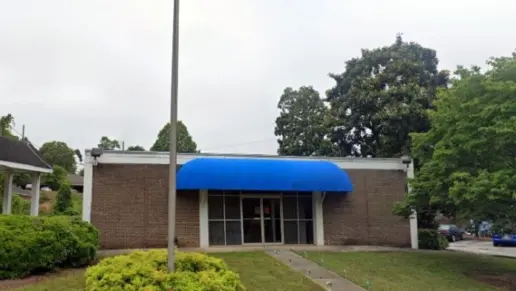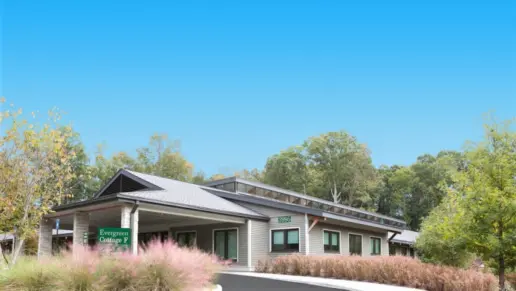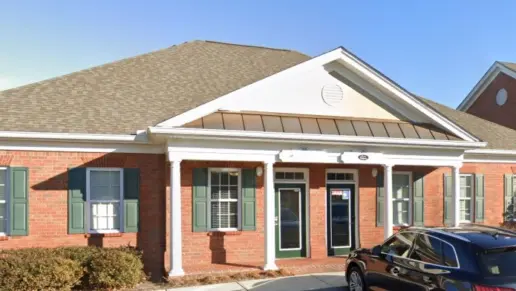About Twin Cedars Youth and Family Services – Community Counseling
Twin Cedars Youth and Family Services - Community Counseling is located in LaGrange, Georgia. They provide community based services for people in and around the LaGrange area. They have a wide range of programs to help prevent alcohol and other substance abuse as well as help with behavioral challenges and trauma related to sexual abuse. They strive to meet your individual needs and those of the community. Their residential and outpatient programs are centered around prevention, education and advocacy.
They have a Partners In Prevention Project at this treatment center that’s designed to prevent substance abuse among youth and provide resources and training. They also provide services to any partners within the community who try to battle drug and alcohol abuse. One of the main goals of this program is to reduce access to alcohol and binge drinking among 9-20 year olds. They also want to reduce and change the perception of marijuana use for 9-17 year olds.
Another unique program they have here is called Connections. It’s a step down program for residents aged 14-21 with a sexually aggressive history who have recently completed an intensive treatment program. It’s designed to foster long term success by connecting you to family, resources and a community. You’ll get education and guidance in substance abuse and relapse prevention, help with social skills and problem solving and develop daily living skills like money management. They’ll also help you apply for college or trade schools.
They have lessons about healthcare and fitness as well as education about understanding sexuality and healthy personal values. Another unique service they provide is two separate programs that are based on foster care for children and youth and an alternative to foster care for families in need.
Twin Cedars also offers the Bradfield Center which is a residential program for boys. It helps 9-17 year old boys who are dealing with trauma from sexual abuse and facing behavioral problems as a result.
What I really like about this treatment center is the diverse set of programs they have available that are also pretty unique. They seem to have a “no one left behind mentality.” Plus, they have a fully accredited school on site.
Rehab Score
Accepted Insurance
Other Forms of Payment
Medicaid is a state based program that helps lower-income individuals and families pay for healthcare. Medicaid covers addiction treatment so those enrolled can use their coverage to pay for rehab. When a program accepts Medicaid the client often pays very little or nothing out of their own pocket.
Private insurance refers to any kind of healthcare coverage that isn't from the state or federal government. This includes individual and family plans offered by an employer or purchased from the Insurance Marketplace. Every plan will have different requirements and out of pocket costs so be sure to get the full details before you start treatment.
Self-pay involves paying for treatment out of your own pocket. You can use savings or credit, get a personal loan, or receive help from family and friends to fund your treatment. If you don't have insurance or your insurance plan doesn't cover a specific program, self-pay can help ensure you still get the care you need.
Financial aid can take many forms. Centers may have grants or scholarships available to clients who meet eligibility requirements. Programs that receive SAMHSA grants may have financial aid available for those who need treatment as well. Grants and scholarships can help you pai for treatment without having to repay.
Addiction Treatments
Levels of Care
Treatments
Many of those suffering from addiction also suffer from mental or emotional illnesses like schizophrenia, bipolar disorder, depression, or anxiety disorders. Rehab and other substance abuse facilities treating those with a dual diagnosis or co-occurring disorder administer psychiatric treatment to address the person's mental health issue in addition to drug and alcohol rehabilitation.
Mental health rehabs focus on helping individuals recover from mental illnesses like bipolar disorder, clinical depression, anxiety disorders, schizophrenia, and more. Mental health professionals at these facilities are trained to understand and treat mental health issues, both in individual and group settings.
Programs

Clinical Services
Cognitive Behavioral Therapy (CBT) is a therapy modality that focuses on the relationship between one's thoughts, feelings, and behaviors. It is used to establish and allow for healthy responses to thoughts and feelings (instead of unhealthy responses, like using drugs or alcohol). CBT has been proven effective for recovering addicts of all kinds, and is used to strengthen a patient's own self-awareness and ability to self-regulate. CBT allows individuals to monitor their own emotional state, become more adept at communicating with others, and manage stress without needing to engage in substance abuse.
Whether a marriage or other committed relationship, an intimate partnership is one of the most important aspects of a person's life. Drug and alcohol addiction affects both members of a couple in deep and meaningful ways, as does rehab and recovery. Couples therapy and other couples-focused treatment programs are significant parts of exploring triggers of addiction, as well as learning how to build healthy patterns to support ongoing sobriety.
Research clearly demonstrates that recovery is far more successful and sustainable when loved ones like family members participate in rehab and substance abuse treatment. Genetic factors may be at play when it comes to drug and alcohol addiction, as well as mental health issues. Family dynamics often play a critical role in addiction triggers, and if properly educated, family members can be a strong source of support when it comes to rehabilitation.
Group therapy is any therapeutic work that happens in a group (not one-on-one). There are a number of different group therapy modalities, including support groups, experiential therapy, psycho-education, and more. Group therapy involves treatment as well as processing interaction between group members.
In individual therapy, a patient meets one-on-one with a trained psychologist or counselor. Therapy is a pivotal part of effective substance abuse treatment, as it often covers root causes of addiction, including challenges faced by the patient in their social, family, and work/school life.
Trauma therapy addresses traumatic incidents from a client's past that are likely affecting their present-day experience. Trauma is often one of the primary triggers and potential causes of addiction, and can stem from child sexual abuse, domestic violence, having a parent with a mental illness, losing one or both parents at a young age, teenage or adult sexual assault, or any number of other factors. The purpose of trauma therapy is to allow a patient to process trauma and move through and past it, with the help of trained and compassionate mental health professionals.
Contact Information
701 Lincoln street
Lagrange, GA 30240







